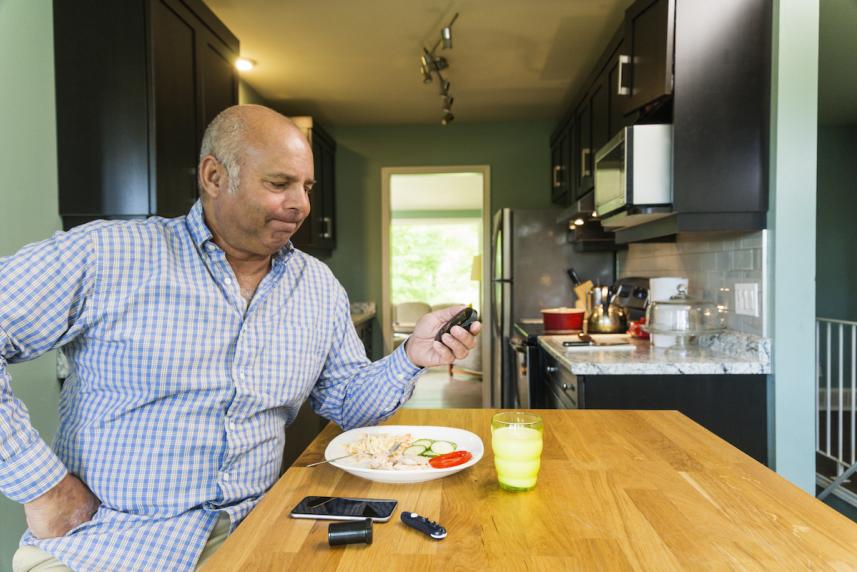Four ways to reduce stress when you have diabetes
Keep your stress (and blood sugar levels) in check with these expert tips.

By now, you probably recognize the physical symptoms of stress: tummy butterflies, a rapid heartbeat, tense muscles. But there are less visible ways that stress can affect the body—including how it impacts your blood sugar levels.
“Stress can impact blood glucose, and the diagnosis of diabetes can cause stress,” says Subbulaxmi Trikudanathan, M.D., a professor at the University of Washington. That’s because stress causes the body to release hormones that trigger blood sugar to rise, and that, in turn, can change the way we take care of ourselves and manage our diabetes.
Here, Dr. Trikundanathan offers four key ways to control both physical and emotional stress and keep your blood sugar levels in check.
- Be proactive with your health
The more proactive you are about managing your diabetes, the less likely you’ll stress about it. This includes monitoring your blood sugar levels, scheduling regular check-ups with your doctor, and taking your medications as directed and on time. “Contact your doctor for advice about what to do if your blood glucose is elevated,” Dr. Trikudanathan advises.
The key is to be an active participant in managing and improving your health. Ask yourself: What can I do about this? Create a list of specific steps you can take and then do them.
- Exercise
“Exercising will improve your blood glucose, and it’s relaxing,” Dr. Trikudanathan says. Go for a walk, dance, garden, play a sport, or join a gym. Slower, calmer activities, including meditation, yoga, and even deep breathing, have also been shown to help reduce stress.
- Talk to someone you trust
Whether it’s a family member, a close friend, or someone in your community, don’t hesitate to reach out to an individual you trust when stress levels start to rise. A mental health professional can also help you develop strategies for managing stress and staying healthy. - Hydrate, hydrate, hydrate
Aim to drink eight ounces of water every hour, Dr. Trikudanathan says. If you are vomiting or have diarrhea, also consider electrolyte replacement drinks.


